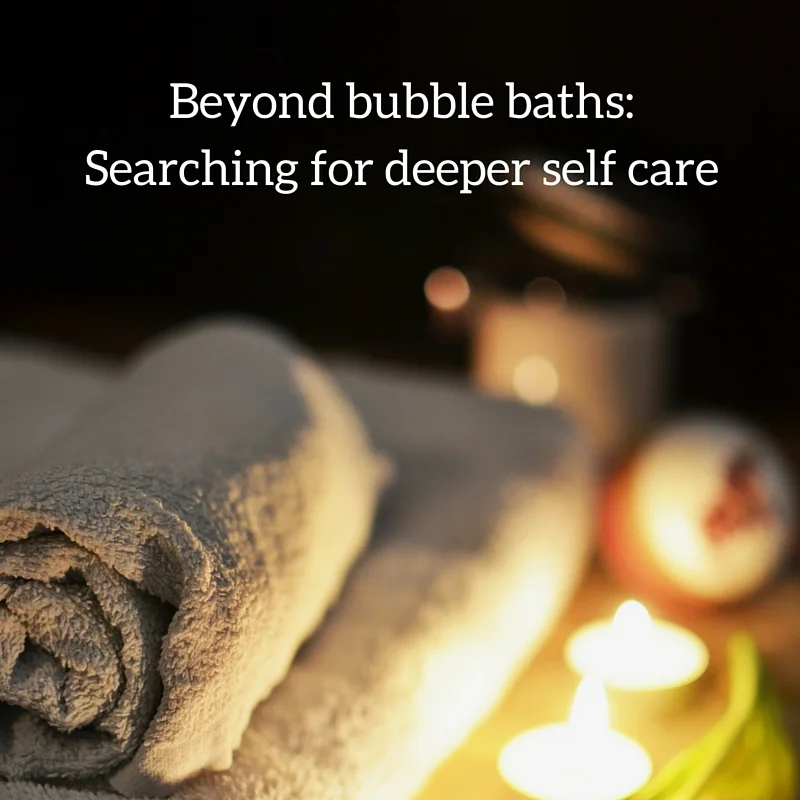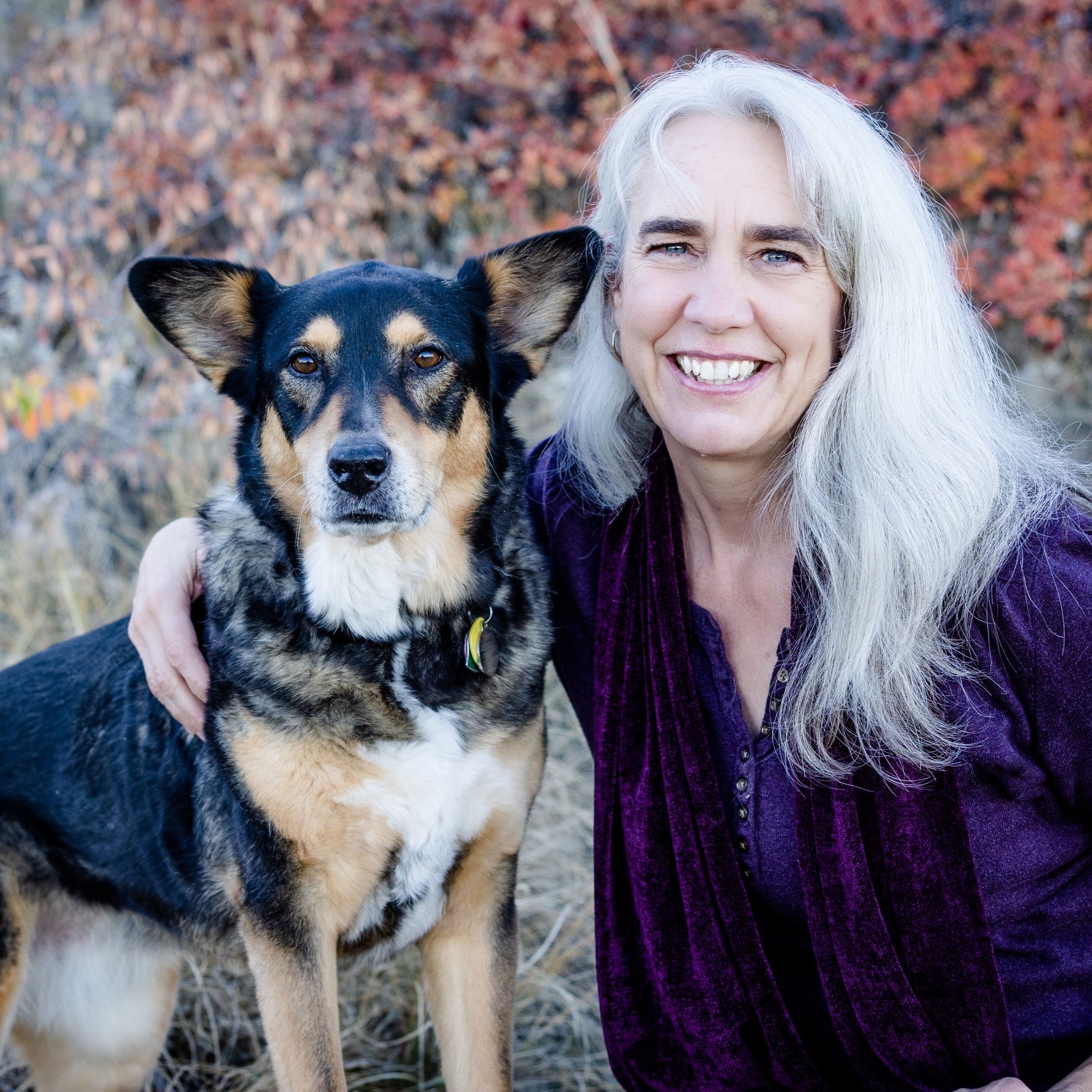Beyond Bubble Baths: Searching for Deeper Self Care
/Self care = care for others
What I love most about my work is the joy of witnessing people heal. On the flip side, I also witness a lot of suffering. To be capable of holding the suffering as well as the joy, I’ve had to deepen my understanding of self care. It is no longer good enough to get a massage or take a yoga class when I find that I’m stressed out. Those things can be great to do, but real self care, I’ve found, involves adjusting my attitude about caring for myself, as well as setting up a lifestyle in which I attend to my own needs on a much more regular basis. It's about keeping my tank filled so the needle never ends up on empty.
How we can get in our own way
Creating and sustaining a consistent practice of self care can be pretty challenging. First of all, we live in a world that expects a lot of productivity. And self care doesn’t always look productive. And then there are a lot of common messages in our world that work against it. We may have been told that we don’t deserve to be treated well, or that it’s selfish to put ourselves before others, or that self-sacrifice is virtuous, etc. Often there is some work to do to make these messages conscious, and decide how to handle them, before we can get to a point where taking care of ourselves feels OK. My own biggest obstacle to self care is an internal voice that says self care is fine for rich or important people, but it’s too much for me to expect. So I’ve set a goal to unpack that voice, and find ways to move it aside.
A bubble bath may not be self care
My training paid lip service to self care. We’d get lists of things we might do to take care of ourselves. I’d sometimes try it, and end up taking a bubble bath since that is free and easy. But I’ve found that picking a couple of things off of a list isn’t really effective self care at least for me.
I believe the best self care regime involves activities that provide refueling in a number of domains: emotional, spiritual, physical, social, intellectual. And whichever domain gets drained the fastest or most often is the place to start. For example, I can get emotionally drained when my therapy case load is large. So one of my top self-care priorities is to do my own regular therapy, where I can sift through my emotional life, and find understanding and support for myself. That allows me to have enough resources to then give the same to others.
One moment at a time
You can work on this at a smaller scale, too. When I have a window to do something for myself these days, I'll check in with myself and try to determine what kind of self care might feel the most helpful. In one moment, I may find that sitting all day has made my body feel stiff, so I could use a walk. In another moment, I may feel doubt about how I handled a session, so consulting with a colleague would be more helpful. A lot of times, I find that I just need to eat, or drink, or visit the bathroom!
Where to start
If you find yourself feeling drained, I highly recommend you spend some time contemplating what you could do for yourself that might help you recharge. And if that feels hard to do, perhaps poke at that feeling a bit, and see if you can figure out more about it. What messages do you hold about taking good care of yourself?







